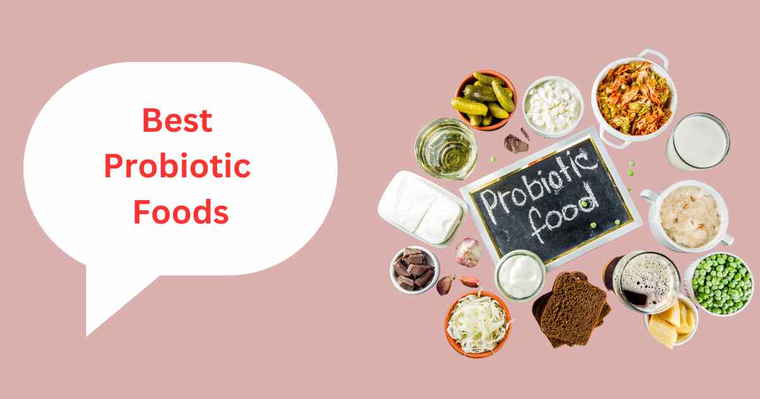A healthy gut is the foundation of overall wellness. From digestion and nutrient absorption to immunity and even mood regulation, your gut plays a powerful role in your daily health. One of the simplest ways to support gut health is by including probiotic foods in your diet. Probiotics are live microorganisms (good bacteria and yeasts) that help maintain a healthy balance in your gut microbiome. Unlike supplements, probiotic-rich foods provide natural sources of these beneficial bacteria along with essential nutrients. In this article, we’ll explore the 10 best probiotic foods you can add to your meals today.
1. Yogurt
Yogurt is one of the most popular and accessible probiotic foods. Made by fermenting milk with live bacteria such as Lactobacillus and Bifidobacterium, yogurt helps improve digestion and supports a healthy immune system. For maximum benefits, choose plain yogurt with “live and active cultures” on the label.
2. Kefir
Kefir is a fermented milk drink that’s richer in probiotics than yogurt. It contains a unique mix of bacteria and yeasts, making it a powerhouse for gut health. Regular consumption of kefir may also improve bone health and boost immunity.
3. Sauerkraut
Sauerkraut, or fermented cabbage, is a traditional food loaded with probiotics, fiber, and vitamins C and K. It enhances digestion and supports gut bacteria diversity. Just be sure to choose unpasteurized sauerkraut, as pasteurization kills beneficial microbes.
4. Kimchi
Kimchi, a spicy Korean side dish made from fermented vegetables (like napa cabbage and radish), is not only rich in probiotics but also packed with antioxidants and fiber. Its combination of probiotics and spices helps promote a healthy metabolism.
5. Tempeh
Tempeh is a fermented soybean product that’s high in protein and probiotics. Popular among vegetarians and vegans, it also provides nutrients like iron, calcium, and magnesium, making it a nutritious meat alternative.
6. Miso
Miso is a Japanese seasoning made by fermenting soybeans with salt and koji (a type of fungus). Used in miso soup and sauces, it is a flavorful way to include probiotics in your diet while also providing antioxidants and essential minerals.
7. Pickles (Fermented)
Naturally fermented pickles (without vinegar) are another great probiotic food. They contain Lactobacillus bacteria that support digestion and immunity. Always check the label to ensure they’re fermented, not just brined in vinegar.
8. Kombucha
Kombucha is a fizzy, fermented tea that has become a trendy health drink worldwide. It contains beneficial bacteria, organic acids, and antioxidants. Drinking kombucha may aid digestion and help detoxify the body.
9. Certain Cheeses
Not all cheeses contain probiotics, but varieties like Gouda, mozzarella, cheddar, and cottage cheese can be good sources when labelled with “live and active cultures.” These cheeses provide both probiotics and bone-strengthening calcium.
10. Traditional Buttermilk
Known as “chaas” in India, traditional buttermilk is the liquid left after churning butter. It’s a natural probiotic drink that supports digestion, hydration, and cooling the body in hot climates.
Final Thoughts
Including a variety of probiotic foods in your diet can do wonders for your gut health, immunity, and overall well-being. From yogurt and kefir to kimchi and kombucha, these foods provide a delicious and natural way to boost your digestive system.
Start small—add a serving of yogurt to your breakfast or enjoy a bowl of miso soup with dinner—and gradually explore other probiotic-rich options. Your gut will thank you!

